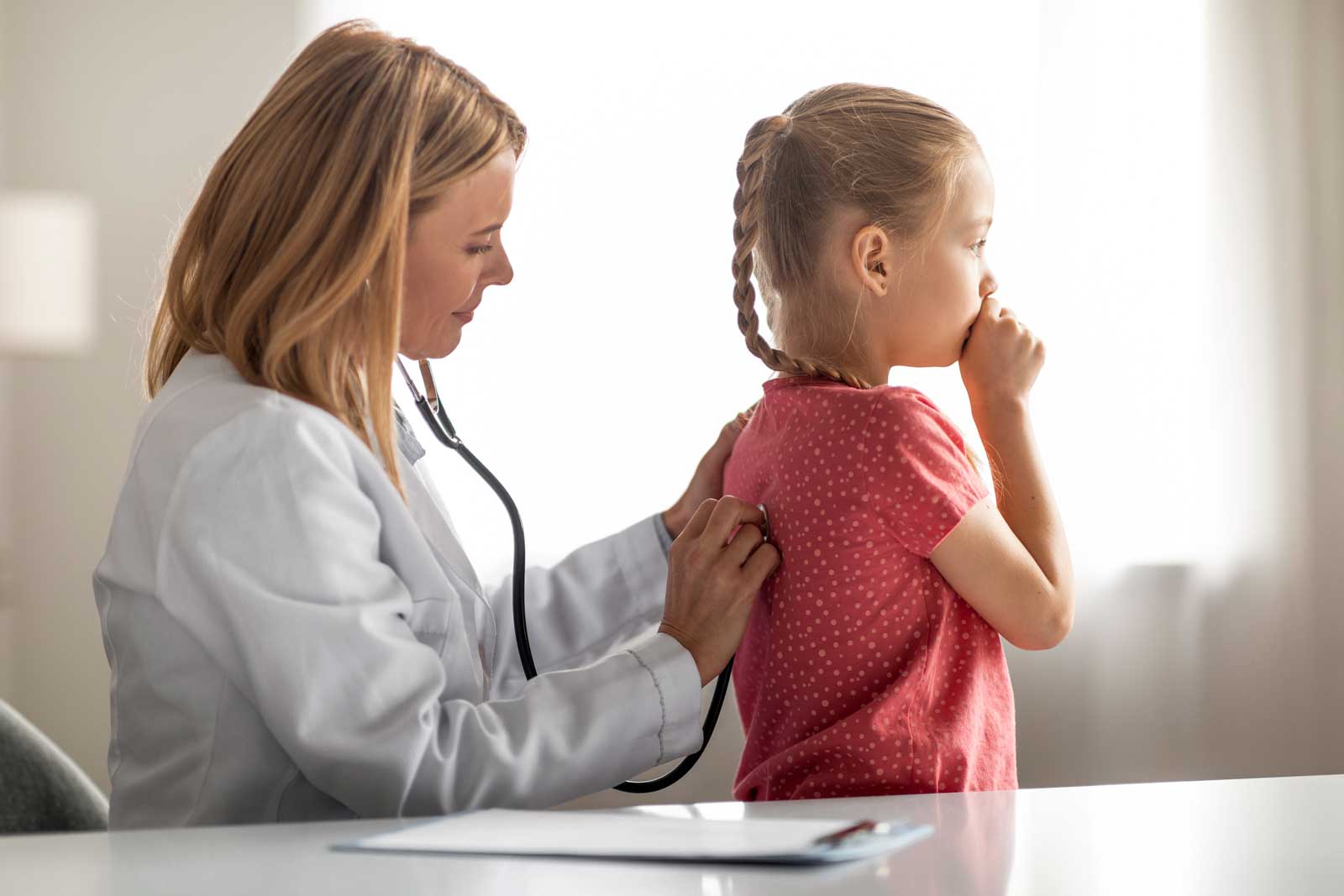Children develop differently – each in their own special way and at their own pace. The paediatrician is best placed to assess whether your child is developing normally.
There is a good reason why preventive medical check-ups take place at certain intervals: Early detection and timely treatment of some conditions are only promising in a certain age range. For example, at the U3 examination in the fourth to fifth week of life, the hip joints are examined using ultrasound in order to detect and treat a hip maturation disorder in good time.
At every check-up, your child will be thoroughly examined by me from head to toe. I attach great importance to physical, motoric and mental development. Depending on age, I assess the various developmental milestones, for example whether the baby can already hold its head upright in a prone position or whether the schoolchild can solve various motoric and mental tasks and how development is progressing in adolescents. I also check the immunisation status at every check-up and advise you on important topics (e.g. sudden infant death syndrome or the introduction of complementary foods).
Depending on age, various motor tests as well as hearing, vision and speech tests are used.
Eye test:
With the ophthalmoscope and the Plusoptix Vision Screener, I can recognise at an early stage whether a child has a visual impairment. This is because the earlier a visual impairment is recognised, the better it can be treated and amblyopia, i.e. visual impairment, can be avoided. Functional visual impairments are often not recognised early enough, especially in young children. If they are treated too late, permanent damage can occur. This is why an examination with the ophthalmoscope and Plusoptix Vision Screener is an integral part of all my preventive check-ups.
Visual impairments that the Plusoptix Vision Screener can recognise:
Anisometropia = visual impairment (e.g. 1 eye is short-sighted / 1 eye is long-sighted)
Astigmatism = curvature of the cornea
Hyperopia = farsightedness
Myopia = short-sightedness
Asymmetry of vision = strabismus
Anisocoria = different pupil size
Hearing test:
An audiometer specially designed for children tests both hearing and speech comprehension, and whether what has been understood can also be realised. The playful nature of the pilot test means that the hearing test can be carried out not only on older children and adolescents, but also at pre-school age, so that hearing damage can be recognised in good time.
Blood test and ultrasound:
In adolescents, a blood sample is also taken in accordance with the recommendation of the German Professional Association for Paediatric and Adolescent Medicine, which also examines blood lipids, cholesterol and thyroid hormones. An ultrasound examination of the abdominal organs and thyroid gland can also be carried out on request.
For all check-ups, I follow the recommendations of the German Society for Paediatric and Adolescent Medicine and the Professional Association for Paediatric and Adolescent Medicine in Germany.
As a partner of Charite Berlin, I can issue your child with the yellow medical check-up booklet.
The following check-ups are recommended for children in Germany:
| time | Investigation |
| immediately after birth | U1 |
| 3rd to 10th day of life | U2 |
| 1 month (4th to 5th week of life) | U3 |
| 3 Fun (3rd to 4th month of life) | U4 |
| 6 Fun (6th to 7th month) | U5 |
| 1 year (10th to 12th month) | U6 |
| 2 years (21st to 24th month) | U7 |
| 3 years (34th to 36th month) | U7a |
| 4 years (46th to 48th month) | U8 |
| 5 years (60th to 64th month) | U9 |
| 7 to 8 years | U10 |
| 9 to 10 years | U11 |
| 13 years (12 to 14 years) | J1 |
| 16 years up to 17 years | J2 |

Dr. med. Laura Schrörs

